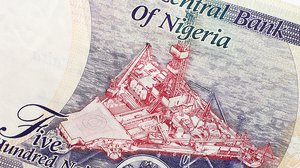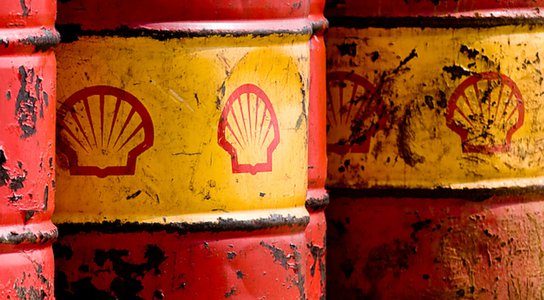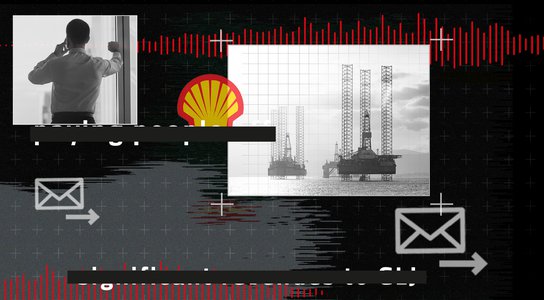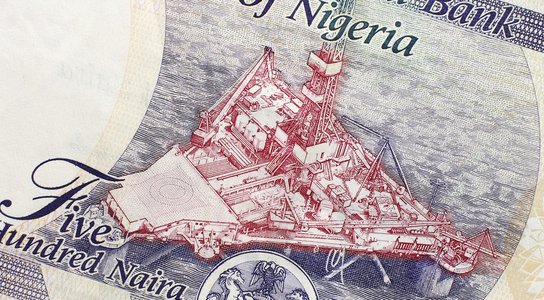Oil giant Shell’s Make the Future Live – a ‘festival of bright energy ideas’ - has come to London. So, we thought we’d take you through a quick rundown of what a future moulded by the oil company may look like - based on their previous track record of up-standing, fair and law-abiding business practice, of course.
Shell: A beacon of light? Not quite. Credit: Grid Scheduler / Flickr
A future without healthcare inequality and hunger
In a future shaped by Shell, we presume there won’t be any hunger, healthcare inequality or general poverty. At least, we presume they don’t see these things as a big enough issue for them to make sure the money they pay for oil blocks, that could be invested to benefit citizens, isn’t trousered by convicted money-launderers.
In the case of the Malabu Deal, for which both Shell and their Italian oil major counterparts Eni are currently on trial, this was certainly the case. Having agreed on a price of $1.3 billion for the rights to a Nigerian offshore oil field known as OPL 245, Shell and Eni’s contribution to the Nigerian government was set to be enough to end the country’s famine one and a half times over, or to double their health budget.
But just a fraction of the money ever went to the government, instead $1.1 billion ended up in the hands of Dan Etete, a disgraced former oil minister and convicted money launderer who seems to have spent the money his country should have received on luxury property, a private jet, and armoured Cadillacs. For a country with close to 87 million people living in extreme poverty, the future was certainly looking bright for a short while, until Shell decided to make it their way.
A future of gender equality
Shell’s #MakeTheFuture campaign has, in part, been characterised by a particular onus on closing the gender gap in STEM careers. As a company supposedly leading the way (though this way is unfortunately heading into climate oblivion) in engineering and technology, the promotion of increased representation in this field can only be a great thing.
But, as a company which still invests 95% of its capital in oil and gas, Shell is driving a very serious problem which disproportionately affects women on a global scale: climate change. According to the UN’s gender analysis of climate change, women, particularly in impoverished communities, are much more likely to feel the adverse effects than their male counterparts. And on the S in STEM – ‘Science’ - Shell’s rhetoric and actions are also strangers to each other. But we’re coming to that.

Deprived of $1.1bn: Nigeria is a country with increasing poverty. Credit: Pavel Shlykov / iStock
A future where the world’s issues are responded to and resolved, together
The entirety of Shell’s Make the Future campaign is founded on the idea that ‘the answers to tomorrow’s energy challenges lie in the power of people’s ingenuity’ and that, together, we can work to build a better, more sustainable future.
From the outside, it seems like the oil giant may have had a change of heart, realising the error of its fossil fuel intensive ways and deciding to use its might and capital to fight climate change. Dig a little deeper beyond the superficial, bordering-whimsical ideas presented on the company’s site - a lamp powered by gravity? London buses fuelled by coffee, anyone? - and you learn that this outward message is a façade.
Aside from its aforementioned persistent investment in climate damaging fuels, the sixth largest company in the world has known about climate change and the adverse effects of oil and gas since the 1980s. Yet, despite this awareness, the company has continued to march on with business as usual, earning billions as a leader in an industry it knows is destroying the planet. The energy challenges are here, today, and increasing, yet we could have been on the right path to resolve them decades ago were it not in part for Shell and companies like it.
To frame itself as the beacon of hope is not only audacious, but false. Shell knew of the dangers of climate change for years and didn’t respond. Now it’s trying to frame issues as ‘tomorrow’s challenges’ and place itself as the company working to save the world. Make the Future or Break the Future. What’s it to be Shell?


